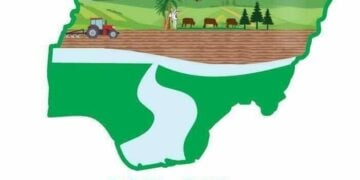Food and Agriculture Organisation of the United Nations (FAO), in collaboration with the Federal Ministry of Agriculture and Food Security, has launched the 2025 Nigeria Food and Agriculture Policy Monitoring Review (PMR).
The initiative aims to guide evidence-based agricultural transformation under the National Agricultural Technology and Innovation Policy (NATIP).
The unveiling held in Abuja brought together senior government officials, development partners, the World Bank, private sector leaders, farmer organisations, civil society and academia to engage in strategic dialogue on the future of Nigeria’s agricultural policy.
The PMR, developed with technical support from FAO’s Monitoring and Analysing Food and Agricultural Policies (MAFAP) programme, presents a comprehensive analysis of public expenditure and commodity price incentives over multiple years, offering critical insights to inform policy implementation and investment planning.
In reaffirming the PMR’s alignment with the current administration’s priorities, the minister of agriculture and food security, Abubakar Kyari, said credible research results would support the government’s expenditure and resource allocation.
The minister noted that the timing of the report’s release is apt, particularly since the government, through the Federal Ministry of Finance and Budget Planning, is preparing the 2026 budget proposal for all sectors in the country.
“We must secure our future through food security. Increasing yields and improving nutrition are central to our agenda. The MAFAP analysis provides policymakers and development partners with a clear direction for targeted investments and impactful reforms,” Kyari said.
Earlier, the FAO representative in Nigeria and to the Economic Community of West African States (ECOWAS), Dr Hussein Gadain, emphasised the strategic partnership between FAO and the Nigerian government, noting that “the landmark policy review reflects our shared commitment to transforming Nigeria’s agricultural sector.
The evidence and recommendations presented will serve as a foundation for inclusive growth, improved food security, and sustainable development.”
“Key actions, based on government priorities and stakeholder consultations, continue to ensure that the findings of the report are relevant and achievable for Nigeria’s agricultural transformation,” Gadain said.





